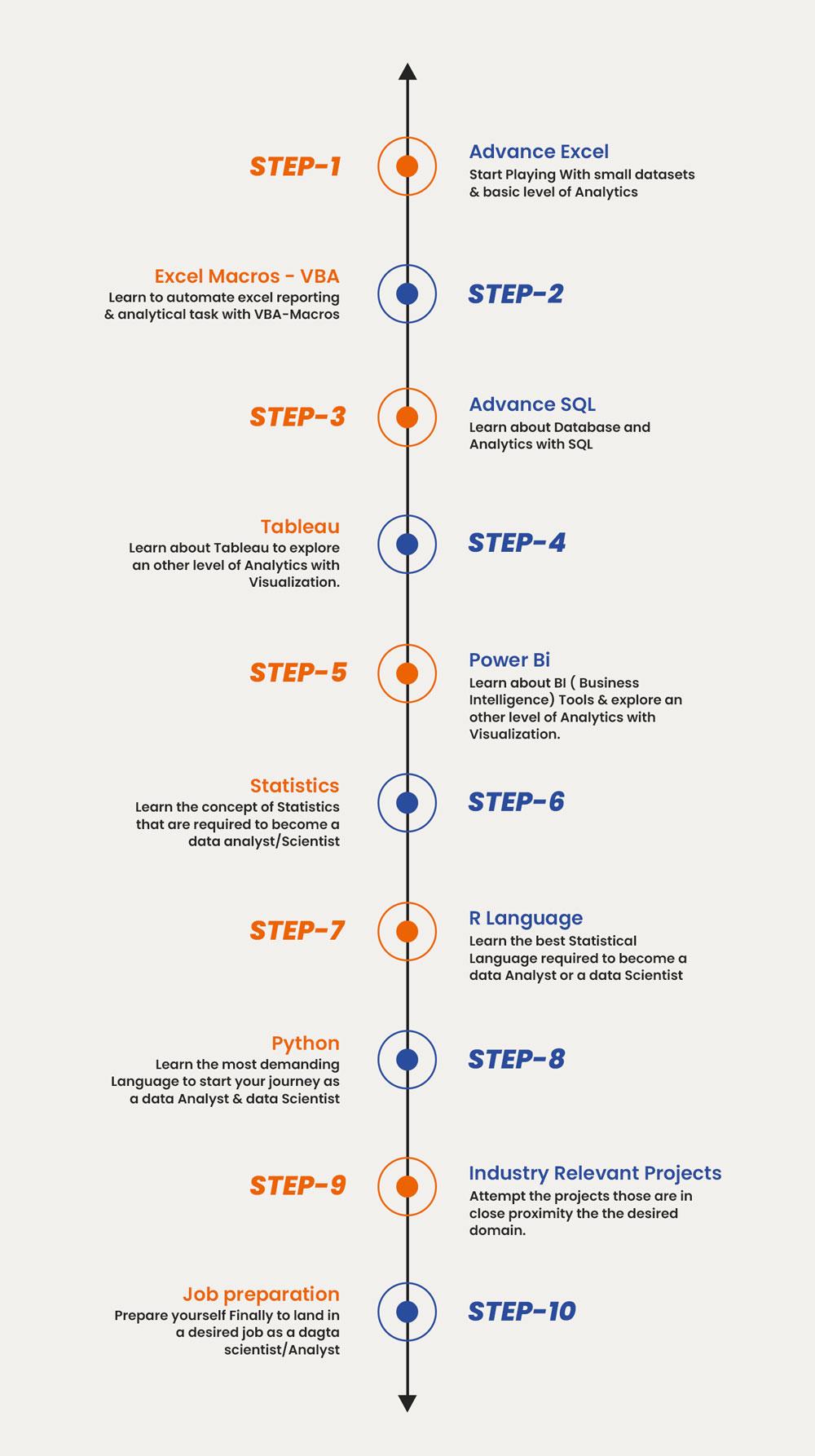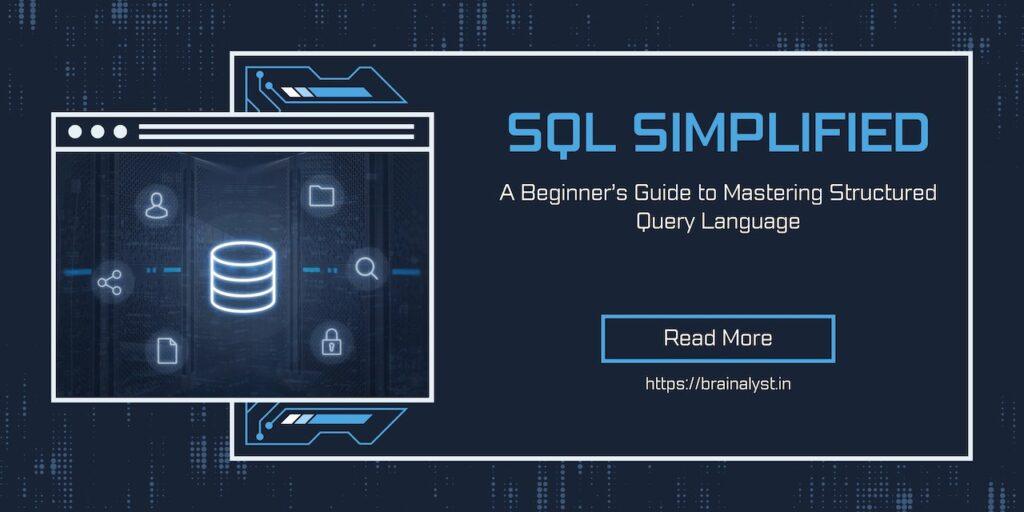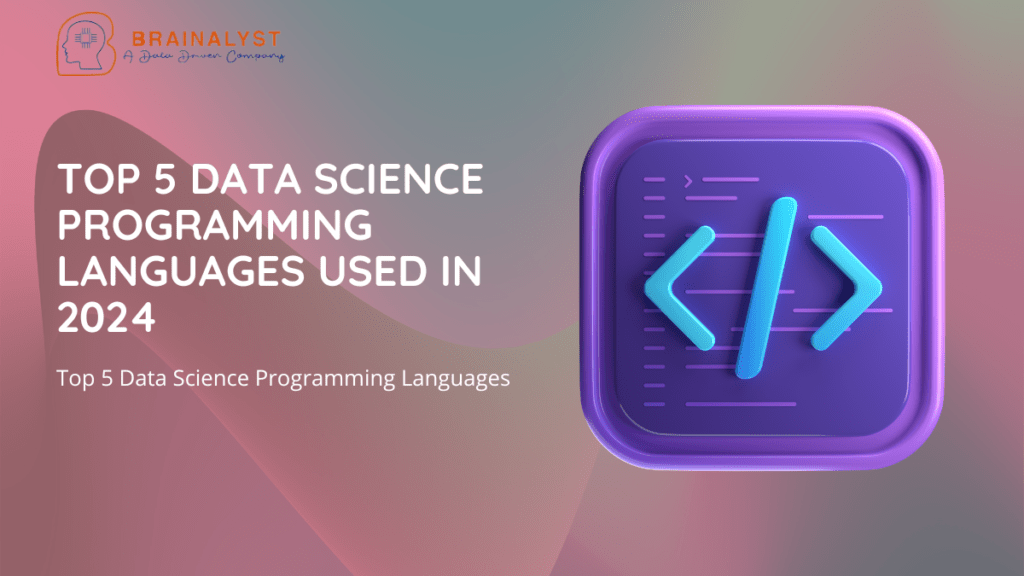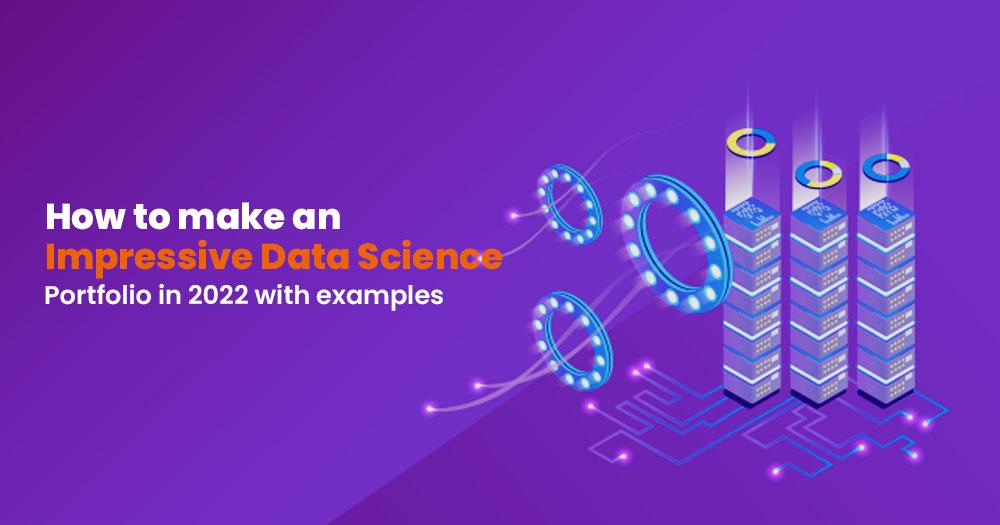Data Science Roadmap
A Step-by-Step Roadmap to Becoming a Successful Data Scientist or Data Analyst
Roadmap For Data Scientist

Learn about BI ( Business Intelligence) Tools & explore an other level of Analytics with Visualization.
Learn the concept of Statistics that are required to become a data analyst/Scientist
Learn the best Statistical Language required to become a data Analyst or a data Scientist
Learn the most demanding Language to start your journey as a data Analyst & data Scientist
Full Stack Data Science
Online Program
With Placement Assurance*
- #1 Cheapest Course in Data Science & Big Data
- Industry-Relevant Curriculum & Projects
- Instructor-Led live online class
- Online/Offline Batches
- Study Material for Each Module*
Early Bird Offer for First 111 Enrollments! Hurry Up! Seats Filling Fast
Introduction to Data Science Roadmap
Data science and data analysis are in-demand fields that offer a wealth of opportunities for those with the right skills and expertise. With the rise of big data, there’s an increased demand for professionals who can collect, analyze, and interpret data to drive business decisions.
This guide provides a comprehensive roadmap to help you become a data scientist or data analyst.
- Build a Solid Foundation in Mathematics and Statistics: Mathematics and statistics are the fundamental building blocks of data science. To thrive in this field, it is essential to have a strong grasp of linear algebra, calculus, probability, and statistics. These concepts lay the groundwork for understanding machine learning algorithms and data analysis techniques. Consider enrolling in online courses or reading textbooks to deepen your knowledge in these areas.
- Learn Programming for Data Science: Data science and data analysis demand proficiency in programming. Becoming well-versed in at least one programming language, such as Python or R, is vital, as they are widely used in the industry and have robust communities with abundant resources. Explore online courses, workshops, or personal projects to hone your programming skills.
- Master Data Cleaning and Pre-processing: Data cleaning and pre-processing are critical steps in data analysis. The ability to clean and prepare data from various sources, including databases and text files, is invaluable. This involves handling missing values, dealing with outliers, and transforming variables to make them suitable for analysis. Seek out online courses or books to learn more about this crucial aspect of data science.
- Learn about databases and SQL: Relational databases play a pivotal role in data science. It’s essential to have a strong understanding of databases and be proficient in writing SQL queries to extract and manipulate data effectively. Consider taking online courses or reading books to deepen your knowledge in this area.
- Get familiar with data visualization: Data visualization is a crucial aspect of data science and analysis. The ability to create compelling visualizations that effectively communicate insights from data is a sought-after skill. Tools like Matplotlib, Seaborn, and Tableau are commonly used for data visualization. Explore online courses or books to enhance your expertise in this field.
- Study machine learning: Machine learning is the backbone of data science. Delve into the fundamental concepts of machine learning, including supervised and unsupervised learning, regression, and classification. Online courses and books are excellent resources to expand your understanding of machine learning.
- Learn about big data technologies: Big data technologies like Hadoop and Spark are instrumental in storing and processing vast amounts of data. Familiarize yourself with these technologies and learn how to work with them efficiently. Online courses or books can help you gain knowledge about big data technologies.
- Gain hands-on experience: Practical experience is indispensable for becoming a successful data scientist or analyst. Engage in online data science competitions, contribute to open-source projects, or work on personal data projects to gain hands-on experience. This will allow you to apply your knowledge and develop valuable skills sought by the industry.
- Network with Other Professionals: Networking is a vital aspect of career growth. Join online communities and attend meetups to connect with other data scientists and data analysts. These interactions will keep you informed about the latest trends and technologies in the field and may even lead to potential job opportunities.
- Continuously Learn and Update Your Skills:
The field of data science and data analysis is continuously evolving. To stay ahead, make it a habit to regularly read blogs, books, and research papers related to the field. Additionally, consider participating in online courses and workshops to keep your skills sharp and up-to-date.
Embark on your data science or data analysis journey with this roadmap, and you’ll be on your way to becoming a proficient and sought-after professional in this exciting and ever-expanding field!





